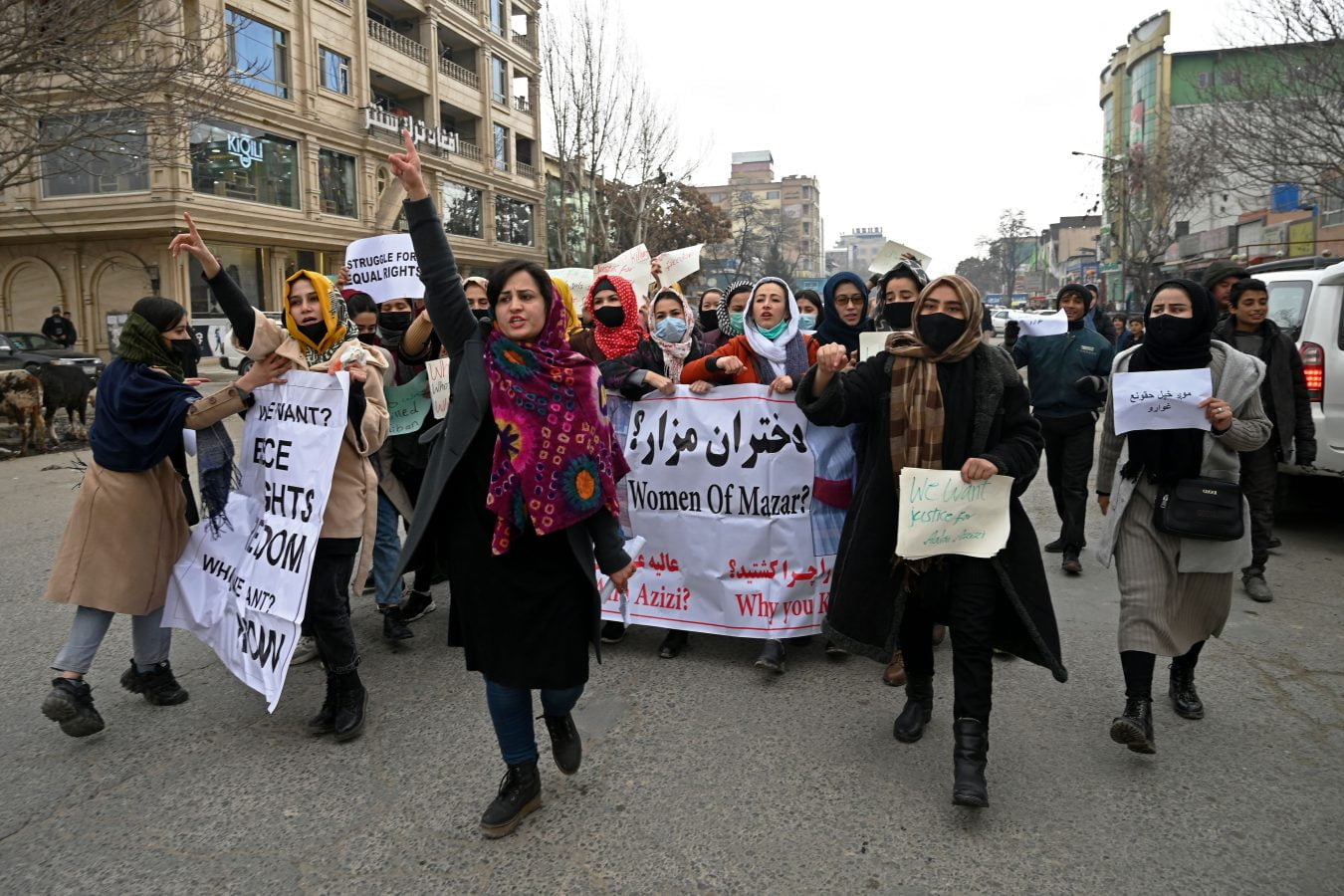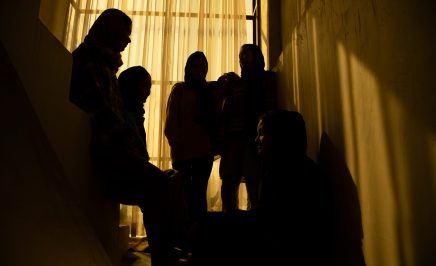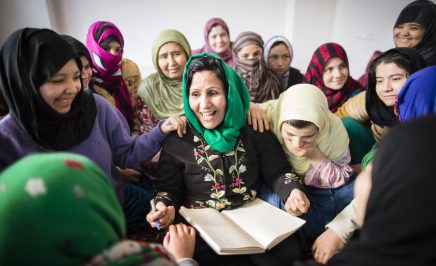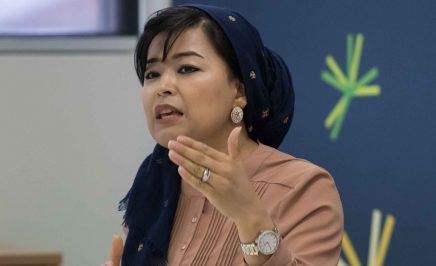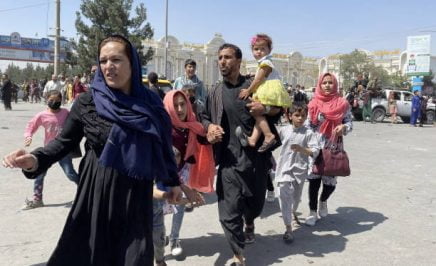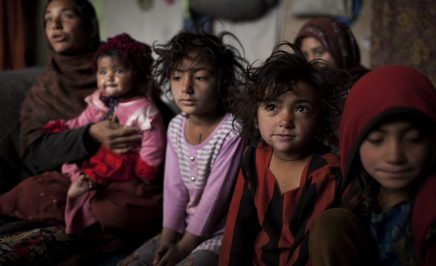Amnesty International and the International Commission of Jurists’ joint report focuses on the human rights situation of women and girls in Afghanistan since the Taliban takeover — the severe restrictions and unlawful crackdown on women and girls’ rights should be investigated as possible crimes under international law.
What’s happening?
‘Second-class citizens’
Since the Taliban’s take over in August 2021, they have imposed draconian restrictions on the rights of Afghanistan’s women and girls who are being deprived of their right to safe, free and fulfilling lives.
Women and girls have been excluded from education beyond primary school. Women have been excluded from political roles and most jobs in the public sector, and their professional opportunities are restricted.
A widespread, systematic attack on women and girls as policy
The Taliban have consistently targeted women and girls who either participated in peaceful protests or were accused of so-called ‘moral offences’ by arbitrarily arresting, detaining and forcibly disappearing them.
Let there be no doubt: this is a war against women – banned from public life; prevented from accessing education; prohibited from working; barred from moving freely; imprisoned, disappeared and tortured including for speaking against these policies and resisting the repression. These are international crimes.
Agnès Callamard, Secretary General at Amnesty International
The discriminatory restrictions the Taliban have imposed on women and girls violate human rights guarantees contained in numerous international treaties to which Afghanistan is a party, including the International Covenant on Civil and Political Rights, the International Covenant on Economic, Social and Cultural Rights, the Convention on the Elimination of all Forms of Discrimination against Women, and the Convention on the Rights of the Child.
What’s in the report?
Amnesty International and the International Commission of Jurists provide specific recommendations in their report regarding how the international community must help dismantle the Taliban’s system of gender persecution.
Holding the Taliban criminally accountable and tackling rampant impunity for the serious crimes documented in this report is a necessary step toward securing justice for survivors of their egregious practices. We simply cannot afford to fail the women and girls of Afghanistan.
Santiago A. Canton, Secretary General of the International Commission of Jurists
The report bases its analysis on a growing body of evidence collected by credible sources, including Amnesty International’s 2022 report Death in Slow Motion, civil society organisations and UN authorities.
Amnesty Australia has been advocating for a road to refuge. The Afghanistan crisis highlights how our work is challenging injustice and could save lives. Learn more about our refugee rights campaign here.
All around the world, including in Australia, women are denied their human rights on the basis of their sex and gender. Learn more about our women’s rights campaign here.
